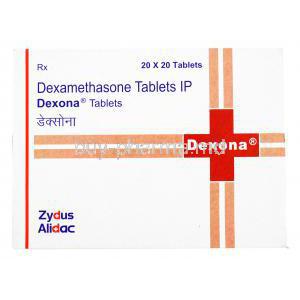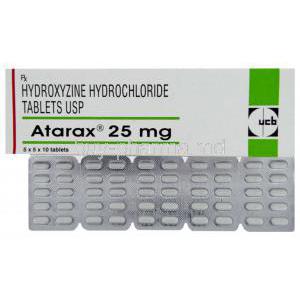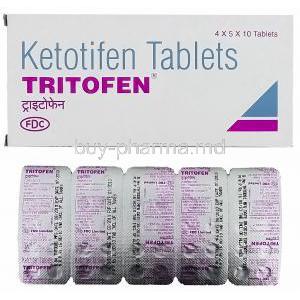Alocet Syrup, Cetirizine
- Introduction
- Composition of Alocet Syrup
- How Alocet Syrup Works
- What is Cetirizine used for (Alocet Syrup)
- Off-Label Uses of Alocet Syrup
- Dosage and Administration
- Administration Specifics Across Demographics
- Cetirizine Side Effects (Alocet Syrup)
- Interactions with Other Medications
- Warnings and Contraindications
- Important Precautions
- Overdose Information
- Storage and Handling Precautions
- Careful Administration Tips
- Conclusion
Introduction
Alocet Syrup stands out as a competitor in the world of antihistamines carefully crafted to improve allergy symptoms. Antihistamines are crucial in fighting against reactions offering comfort from the unpredictable effects caused by histamine. This piece seeks to explain the ingredients, purpose, and advantages of Alocet Syrup providing a look into its importance, in managing allergies.

Cetirizine
Overview of Alocet Syrup
Alocet Syrup is a crafted antihistamine well known for effectively relieving symptoms linked to seasonal allergies. With cetirizine as its ingredient, this syrup provides a strong solution, for easing nasal congestion sneezing, and the discomfort of itchy watery eyes.
Importance of Antihistamines in Allergy Treatment
- Antihistamines block the pathways in the body helping to alleviate the common signs of allergic reactions.
- They act as a defense against allergies improving well-being and lessening the occurrence of allergy induced disruptions.
- These medications are effective in managing a range of allergic issues from nasal congestion, to skin rashes.
Purpose of the Article
This discussion focuses on analyzing the structure and powerful effectiveness of Alocet Syrup highlighting its importance, in treating allergies. The explanation aims to offer healthcare professionals and patients an insight into how it works and the advantages it brings.
Composition of Alocet Syrup
Active Ingredients
Alocet Syrup contains cetirizine hydrochloride as its active component, which is known for its mild sedative properties compared to other antihistamines. This ingredient plays a role, in reducing the excess histamine released during allergic reactions.
Inactive Ingredients and Their Roles
The syrup along, with cetirizine incorporates inactive components that improve the effectiveness and shelf life of the formulation. These additives include;
- Glycerol; Increases the thickness of the syrup and serves as a moisturizer.
- Glycol; Helps maintain the pH levels and dissolve active substances.
- Sodium citrate; Regulates acidity levels to enhance the effectiveness of the drug.
Formulation Specifics
The careful design of Alocet Syrup guarantees absorption and reliable therapeutic outcomes. Tailored to deliver relief from allergic reactions with minimal side effects it is a top pick for individuals, in search of swift and efficient allergy alleviation.
How Alocet Syrup Works
Mechanism of Action of Cetirizine
Cetirizine, the component, in Alocet Syrup works by specifically blocking histamine H1 receptors on the periphery. This targeted approach prevents histamine from triggering reactions offering relief without causing the drowsiness often linked with older antihistamines that affect the central nervous system.
Effects on Histamine Receptors
By blocking receptors without stimulating them cetirizine stops the series of responses usually set off by allergens. This interruption plays a role in preserving regular bodily reactions, without the severe symptoms observed in untreated allergy conditions.
Impact on Allergic Reactions and Symptoms
Alocet Syrup works well in reducing the strength and occurrence of reactions like a runny nose, itchy skin, and watery eyes. This treatment doesn't just help with day-to-day activities. Also boosts the general health of people dealing with allergies.
What is Cetirizine used for (Alocet Syrup)
Primary Indications: Allergy Symptoms
Alocet Syrup is mainly prescribed to help alleviate allergy symptoms caused by the body's sensitive immune reaction to harmless substances. This effective medicine is formulated to address a variety of symptoms, such as;

Rhinitis
- Allergic conjunctivitis (symptoms include red, itchy, and watery eyes)
- Pruritus and urticaria (commonly known as hives with red itchy welts on the skin).
Its quick absorption and lasting effects make it a valuable weapon, against the bothersome and disruptive impact of allergies.
Secondary Benefits: Cold and Urticaria Relief
Alocet Syrup not only helps with allergies but also provides additional relief for common cold symptoms and urticaria.
- It can help ease sneezing and throat itchiness during a cold.
- Reduce the severity and duration of urticarial outbreaks bringing comfort to those who suffer chronically.
This medication is a go-to in households, for treating various everyday ailments.
Comparison with Other Antihistamines
When compared to similar products Alocet Syrup stands out for a few key reasons.
- Firstly it causes sedative effects unlike older antihistamines making it suitable for patients needing to stay alert.
- Additionally, it is known for its relief starting to work within an hour of taking it.
- Furthermore, a single dose offers relief for up to 24 hours providing convenience and lasting comfort.
These qualities highlight the position of Alocet Syrup, in the market by meeting the needs of users looking for effective and long-lasting allergy management without frequent dosing or disruptive side effects.
Off-Label Uses of Alocet Syrup
Exploring Non-Approved Uses
Alocet Syrup, typically prescribed for allergies has been studied for off-label uses that expand its usefulness beyond the usual scope.
These alternative applications include managing anxiety symptoms by tapping into its sedative properties treating insomnia with cetirizine's gentle sedating effects to aid in sleep without the strong side effects of typical sleep aids and easing motion sickness by reducing nausea and dizziness during travel, with its antihistamine action.
The diverse range of uses demonstrates how Alocet Syrup is being adapted in real-world medical practice based on personal experiences and healthcare provider judgment.
Evidence Supporting Off-Label Benefits
Several studies and clinical reports have explored the benefits of using Alocet Syrup in unconventional ways.
- Research has shown that it may have some effectiveness in reducing anxiety-related symptoms due to how cetirizine affects the central nervous system.
- Individual case studies have highlighted improvements in sleep quality among those with rhinitis who struggle with disrupted sleep when taking cetirizine.
- From observations, there are indications that Alocet Syrup could help alleviate motion sickness symptoms although these findings are preliminary and require further investigation.
The existing body of evidence hints at a foundation for, off-label use but more comprehensive studies are necessary to establish both its effectiveness and safety conclusively.
Ethical and Legal Considerations
The ethical and legal considerations surrounding the off-label use of Alocet Syrup are significant.
- Healthcare providers must carefully balance the advantages and risks when prescribing off-label ensuring that their decisions are based on solid clinical judgment and the best available evidence.
- Patient consent is crucial as individuals should be fully informed about the nature of the treatment understanding both the possible risks and benefits in order to make an informed choice.
- Moreover, prescribers need to adhere to regulatory standards and professional guidelines maintaining detailed documentation and reasoning for any off-label usage to support their clinical decisions if necessary.
While it is common for medications like Alocet Syrup to be used off label it is essential to approach practices with caution and thorough consideration in order to uphold ethical standards and comply with legal requirements, in patient care.
Dosage and Administration
Standard Dosage for Different Age Groups
The dosage of Alocet Syrup is carefully adjusted based on age to maximize effectiveness while minimizing side effects. Here's the recommended dosing schedule;
- Adults and individuals over 12 years old Take 10 mg once a day which is typically 10 ml of the syrup.
- Kids aged 6 to 12 years; Take 5 mg twice daily equal to 5 ml per dose.
- Children between 2 and 6 years old; Take 2.5 mg twice a day equivalent to 2.5 ml, per dose.
This dosing strategy ensures that each age group receives a therapeutic dose that suits their metabolic requirements and risk factors.
Adjustments for Specific Conditions
Patients with kidney or liver issues need to have their medication doses adjusted to avoid the risk of drug buildup and potential harm.
- For those with kidney problems, the dosage might be halved depending on the seriousness of the condition.
- Similarly, individuals with liver deficiencies should be given modified doses or longer intervals, between doses to accommodate for drug processing.
Methods and Timing of Administration
You can take Alocet Syrup by mouth with or without food. It's okay to be flexible, with when you take it. For optimal results try to take it at the same time every day to keep a consistent level of the medicine in your system. It's suggested to take the dose in the evening to offset any drowsiness that might occur.
Administration Specifics Across Demographics
Administration to Elderly Patients: Special Considerations
As people get older they might need changes in their medication doses because their kidneys don't work well as before. They may need doses or take the medicine less often to avoid side effects. It's important to keep an eye, on them to make sure the treatment is safe and works well.
Administration to Pregnant Women and Nursing Mothers: Safety Profile
It is advisable to use Alocet Syrup during pregnancy and breastfeeding when the benefits exceed the potential risks as its safety in these specific groups is not conclusively proven. Pregnant individuals are advised to refrain from using it in the initial trimester while nursing mothers should exercise caution due, to the possibility of the drug transferring into breast milk.
Administration to Children: Dosage Adjustments and Precautions
Although generally considered safe for children aged two and above parents should give Alocet Syrup to their children cautiously. Seek advice from a healthcare provider. Children are more prone to side effects such, as drowsiness. May need lower doses based on their weight and overall well-being.
Cetirizine Side Effects (Alocet Syrup)
Common Side Effects: Drowsiness and Dry Mouth
Common side effects of Alocet Syrup often include drowsiness, which might impact your tasks and alertness as well, as dry mouth that can typically be managed by drinking more water or using saliva substitutes.
Severe Reactions: Rare Cases and Symptoms
Severe responses to Alocet Syrup are uncommon. It can involve serious issues such as anaphylaxis, a severe allergic reaction that could be life-threatening, and significant disruptions in liver function. Immediate medical attention is necessary, in some instances.
Managing Side Effects and When to Seek Help
Dealing with side effects includes treating symptoms directly like drinking enough water for a dry mouth or scheduling activities when feeling drowsy. It's important for patients to consult a healthcare provider if they encounter responses such, as trouble breathing, swelling, or ongoing dizziness as these could indicate serious negative impacts.
Interactions with Other Medications
Common Interactions: Over-the-counter and Prescriptions
Before mixing Alocet Syrup with medications it's crucial to seek advice from a healthcare professional. This is because such combinations can impact its effectiveness or raise the likelihood of side effects. Some common interactions to be mindful of are;
- Sedatives and tranquilizers; These can heighten the drowsiness effects caused by Alocet Syrup.
- Alcohol; Consuming alcohol alongside the syrup can increase sedation. Potentially impair cognitive and motor functions.
- Other antihistamines; Combining them with Alocet Syrup may intensify their effects leading to an increase, in side effects.
Food and Drink Interactions
Although Alocet Syrup does not have any documented interactions with food it is worth noting that certain food and drinks can impact how the drug works and its potential side effects.
- For example, consuming grapefruit juice can affect how cetirizine, the component in Alocet Syrup is metabolized, potentially causing higher levels of the drug, in the blood.
- It's advisable to steer clear of alcohol as it can worsen drowsiness and reduce alertness.

Drinking Medicine Syrup
How to Manage Potential Drug Interactions
To manage drug interactions effectively it's important to;
- Maintain a list of all medications and supplements you're using and share it with your healthcare providers.
- Stay vigilant for any signs of side effects or reduced effectiveness of the medication.
- Seek guidance, from a healthcare before introducing any new medication or dietary supplement.
Warnings and Contraindications
Contraindications: Who Should Avoid Alocet Syrup
People should steer clear of Alocet Syrup if they have allergies to cetirizine or any of the syrups inactive components as well as in cases of severe kidney impairment that could impact the drugs removal, from the body.
Warnings: Conditions Requiring Caution
Although Alocet Syrup is usually considered safe it's important to be careful when using it under circumstances.
- For instance, if you are pregnant or breastfeeding it's uncertain whether Alocet Syrup is completely safe. It's advisable to use it if the advantages outweigh any potential risks to the baby.
- Additionally, individuals, with a history of retention, glaucoma, or high intraocular pressure should exercise caution when taking Alocet Syrup.
Important Precautions
Before You Start: What to Know
Prior to starting Alocet Syrup treatment, it is important to share your medical history with your healthcare provider, including any past heart, liver, or kidney issues. Providing this information is essential, for the successful utilization of the medication.
Monitoring Health: Signs to Watch For
When taking Alocet Syrup individuals should watch out for any signs of issues such as feeling more tired than usual or experiencing increased drowsiness, which could impact their driving or ability to operate machinery. They should also be alert for symptoms of reactions, like skin rash, itching, swelling, severe dizziness, or difficulty breathing.
Preventing Misuse and Overdose
To prevent misuse and overdose it is important to follow the prescribed dosages without making any adjustments on your own.
Also, avoid using CNS depressants at the same time unless instructed by a healthcare professional.
Keep the medication in a place away, from children and anyone who might misuse it.
Overdose Information
Symptoms of Overdosing on Cetirizine
Taking too much cetirizine found in Alocet Syrup can cause serious symptoms that require prompt medical care. Some key signs of cetirizine overdose are;
- Feeling extremely sleepy or deeply sedated affects awareness levels significantly.
- Feeling confused and disoriented indicating involvement of the nervous system.
- Having a heartbeat and feeling restless could be a sign of more serious heart issues to come.
Immediate Steps and Treatments
In case of an overdose of cetirizine it is crucial to act swiftly;
- Reach out to emergency services right away for prompt medical assistance.
- Offer care by keeping track of vital signs and providing treatment, for symptoms.
- If the individual is conscious and alert consider giving activated charcoal within the hour after ingestion to limit absorption.
Prevention Strategies and Educational Tips
To avoid taking much cetirizine it's important to follow the prescribed doses precisely and seek advice from a healthcare professional before making any changes.
Teaching patients and caregivers about the symptoms of an overdose and emphasizing the need to keep medications securely out of childrens reach is crucial.
It's also essential to discuss medication schedules, with healthcare providers to confirm that the prescribed dosage remains suitable.
Storage and Handling Precautions
Proper Storage Conditions
For results keep Alocet Syrup in a cool dry spot shielded from direct sunlight to maintain its effectiveness and prolong its shelf life. The recommended storage temperatures range from 15°C to 30°C (59°F, to 86°F).
Shelf Life and Disposal
Alocet Syrup usually remains effective for 2 to 3 years starting from its production date. It's important for patients to discard the syrup appropriately when it expires or is no longer required. Following community guidelines, for disposal is crucial to avoid harming the environment.
Handling Tips to Maintain Efficacy
To ensure that Alocet Syrup remains effective here are some tips to follow;
- Always make sure to close the cap after each use to prevent contamination and evaporation.
- Do not use the syrup after it has expired as it may not work properly or could be unsafe.
- Keep the bottle in a place that's inaccessible, to children and pets to prevent accidental ingestion.
Careful Administration Tips
Tailoring Dosage to Individual Needs
The dosage of Alocet Syrup should be customized according to the requirements of each patient taking into account factors such as age, body weight, kidney function, and any existing medical conditions. It is important to make any adjustments, with the supervision of a healthcare provider.
Managing Long-Term Use
Patients who need to take Alocet Syrup over a period should be carefully watched for signs of developing tolerance or dependency especially if they have allergies year round. Make sure to schedule check ups to evaluate how well the treatment is working and if its safe.
Importance of Medical Supervision
It's crucial to have oversight when using Alocet Syrup, especially for long-term conditions or with special groups like older adults or those, with multiple health issues. Regular doctor visits help make sure the treatment is working well and reduce any risks.
Conclusion
Summary of Key Points
This article explores the range of uses for Alocet Syrup from treating allergies to addressing less common conditions like hives and cold symptoms. We've discussed what it's made of, including both the inactive components and how they work to provide relief. The conversation also delved into dosing and how it should be adjusted depending on factors like age, health status, and possible interactions, with medications.
Final Recommendations
According to the analysis provided it is crucial for individuals using Alocet Syrup to follow the prescribed dosage and administration instructions carefully to enhance effectiveness and reduce potential risks. Patients must pay attention to how they store and handle the medication to maintain its quality. It is important to monitor and seek advice, from healthcare professionals, particularly for those following extended treatment regimens.
Encouragement for Consulting Healthcare Professionals
In summary, although Alocet Syrup provides advantages for individuals dealing with allergies and other conditions it is vital to follow expert guidance when using it.
It is highly recommended that users actively consult with healthcare professionals to guarantee the efficient utilization of this medication.
Engaging in discussions will not help reduce possible risks but also improve treatment outcomes by customizing therapies based on personal requirements.
Therefore it's always wise to seek advice, from a certified healthcare provider before starting or adjusting the use of Alocet Syrup.











